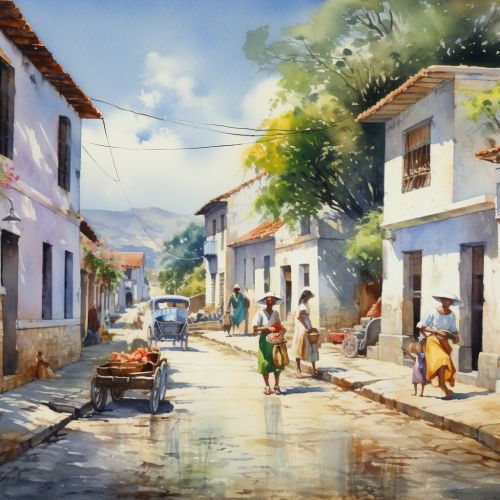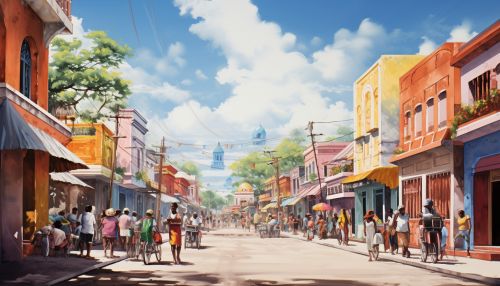Dominicans
Overview
The Dominican people, colloquially known as Dominicans, are the inhabitants or citizens of the Dominican Republic. The Dominican Republic is a multi-ethnic country in the Caribbean basin which is home to people of different ethnic and national backgrounds. As a result, Dominicans do not equate their nationality with ethnicity but with citizenship and allegiance to the Dominican Republic.


History
The indigenous peoples of the Dominican Republic were the Taíno, an Arawak-speaking people who arrived in about AD 600. The culture of the Dominican Republic, like its Caribbean neighbors, is a blend of the cultures of the Spanish colonists, African slaves, and Taíno natives.
Culture
Dominican culture is a mixture of influences from the indigenous Taínos, Spanish colonists, and Africans. The country's culture is additionally influenced by its demographics, economy, and politics, all of which are interconnected.
Music
Music is an integral part of Dominican culture and daily life. The most popular genres in the Dominican Republic are Merengue, Bachata, Salsa, and Reggaeton.
Cuisine
Dominican cuisine is predominantly Spanish, Taíno, and African. The typical cuisine is quite similar to what can be found in other Latin American countries, but many of the names of dishes are different.
Demographics
The Dominican Republic is a diverse country with a population of over 10 million people. The majority of Dominicans reside in the Dominican Republic, while there is also a large Dominican diaspora, particularly in the United States.
Economy
The Dominican Republic is the largest economy in the Caribbean and Central American region. It is an upper-middle income developing country primarily dependent on mining, agriculture, trade, and services.
Government and Politics
The Dominican Republic is a democratic republic with a multi-party political system. Elections are held every four years, with the President serving as both the head of state and head of government. The country has a high level of political freedom, with robust political institutions and a strong tradition of civil liberties.
Education
Education in the Dominican Republic is free and compulsory at the elementary level, and free but non-mandatory at the secondary level. It is divided into four stages: preschool education, primary education, secondary education, and higher education.
Religion
The majority of the population in the Dominican Republic is Roman Catholic. There are also significant communities of Protestants, Jews, and Muslims.
